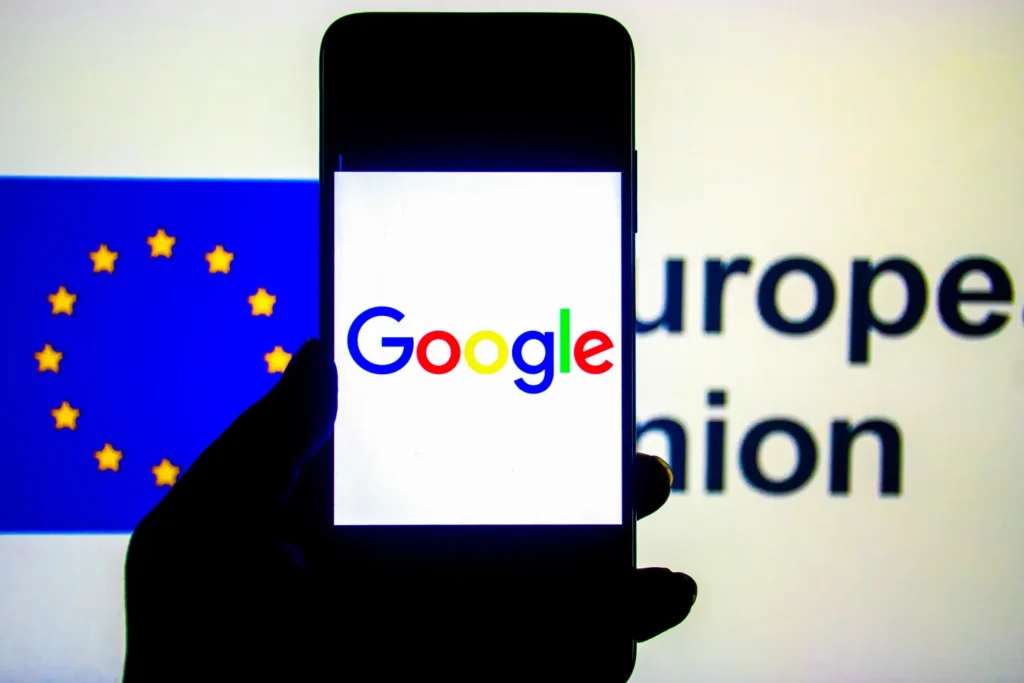The European Union has slapped Google with a 2.95 billion euro ($3.5 billion) fine for violating competition rules by favoring its own digital advertising services, in the latest escalation of the bloc’s ongoing battle with Big Tech.
The European Commission, the EU’s executive arm and chief antitrust authority, ordered the U.S. tech giant to end “self-preferencing practices” and dismantle “conflicts of interest” across its advertising technology supply chain. Regulators warned that Google must propose solutions within 60 days or risk facing harsher remedies, including a possible forced sell-off of parts of its ad business.
This marks the fourth multibillion-euro fine imposed on Google since 2017, underscoring Brussels’ determination to rein in the dominance of U.S. tech firms across Europe.
But the ruling drew a fierce rebuke from U.S. President Donald Trump, who blasted the decision as “very unfair.” Writing on Truth Social, Trump claimed the EU was “effectively taking money that would otherwise go to American investments and jobs.” He added, “My Administration will NOT allow these discriminatory actions to stand.”
Allegations Against Google
The Commission’s investigation centered on Google’s AdX exchange and DFP ad platform, systems that link advertisers with online publishers. Regulators concluded that since 2014, Google had abused its dominant position by favoring its own services, harming competitors, driving up marketing costs for advertisers, and lowering revenue for publishers.
EU competition chief Teresa Ribera said the practices ultimately hurt European consumers through higher prices and reduced quality of online content. “At this stage, it appears that the only way for Google to end its conflict of interest effectively is with a structural remedy, such as selling some part of its Adtech business,” Ribera said.
Google’s Response
Google rejected the decision as “wrong” and vowed to appeal.
“It imposes an unjustified fine and requires changes that will hurt thousands of European businesses by making it harder for them to make money,” said Lee-Anne Mulholland, the company’s global head of regulatory affairs.
The Commission, however, signaled skepticism toward past remedies, noting that fines and compliance pledges had not curbed Google’s dominance. Officials hinted that only structural reforms – such as breaking up parts of the company’s ad empire – may satisfy EU competition concerns.
Wider Implications
The ruling comes amid renewed transatlantic tensions over trade, tariffs, and tech regulation. It follows a formal investigation launched in June 2021 and antitrust charges announced in 2023.
As the standoff intensifies, the case could reshape the digital advertising industry in Europe, potentially setting a precedent for how regulators tackle the influence of U.S. tech giants in global markets.


